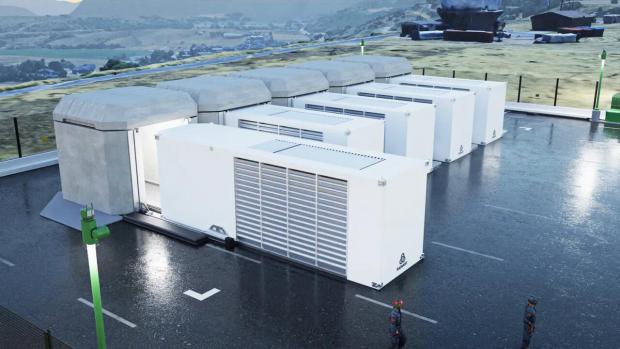
Breaking News
 Japan just injected artificial blood into a human. No blood type needed. No refrigeration.
Japan just injected artificial blood into a human. No blood type needed. No refrigeration.
 China Just Dropped a 6% TAX on Gold - The Market Wasn't Ready for This
China Just Dropped a 6% TAX on Gold - The Market Wasn't Ready for This
 Banks' Strategic Silver Market Manipulation During Off-Hours Trading
Banks' Strategic Silver Market Manipulation During Off-Hours Trading
 No new North Sea oil wells for first time since 1960
No new North Sea oil wells for first time since 1960
Top Tech News
 The 6 Best LLM Tools To Run Models Locally
The 6 Best LLM Tools To Run Models Locally
 Testing My First Sodium-Ion Solar Battery
Testing My First Sodium-Ion Solar Battery
 A man once paralyzed from the waist down now stands on his own, not with machines or wires,...
A man once paralyzed from the waist down now stands on his own, not with machines or wires,...
 Review: Thumb-sized thermal camera turns your phone into a smart tool
Review: Thumb-sized thermal camera turns your phone into a smart tool
 Army To Bring Nuclear Microreactors To Its Bases By 2028
Army To Bring Nuclear Microreactors To Its Bases By 2028
 Nissan Says It's On Track For Solid-State Batteries That Double EV Range By 2028
Nissan Says It's On Track For Solid-State Batteries That Double EV Range By 2028
 Carbon based computers that run on iron
Carbon based computers that run on iron
 Russia flies strategic cruise missile propelled by a nuclear engine
Russia flies strategic cruise missile propelled by a nuclear engine
 100% Free AC & Heat from SOLAR! Airspool Mini Split AC from Santan Solar | Unboxing & Install
100% Free AC & Heat from SOLAR! Airspool Mini Split AC from Santan Solar | Unboxing & Install
 Engineers Discovered the Spectacular Secret to Making 17x Stronger Cement
Engineers Discovered the Spectacular Secret to Making 17x Stronger Cement
Army To Bring Nuclear Microreactors To Its Bases By 2028

The addition of nuclear power will diversify the energy sources available on military bases and provide a critical enhancement to their resiliency, the Army says.
"What resilience means to us is that we have power, no matter what, 24/7," Dr. Jeff Waksman, Principal Deputy Assistant Secretary of the Army for Installations, Energy and Environment, said during a media roundtable attended by TWZ at last week's Association of the U.S. Army's (AUSA) main annual conference.
Waksman's comments followed a briefing earlier in the day at which Army Secretary Daniel P. Driscoll and Department of Energy (DOE) Secretary Christopher Wright jointly announced the launch of the Janus Program.
"The U.S. Army is leading the way on fielding innovative and disruptive technology," Driscoll said. "We are shredding red tape and incubating next-generation capabilities in a variety of critical sectors, including nuclear power."
Janus is the Army's plan to realize President Donald Trump's Executive Order 14299, titled "Deploying Advanced Nuclear Reactor Technologies for National Security," which directs the Department of War to commence operation of an Army-regulated nuclear reactor at a domestic military installation no later than September 30, 2028.
Some time in the next few weeks, barring a long extension of the government shutdown, the Army will release an Area of Interest (AOI) solicitation with a draft request for proposals (RFP) attached, according to Waksman. An industry day event thereafter will give the Army feedback on potential microreactor approaches and contact with interested companies and startups.
A competition will follow, after which the Army expects to select multiple companies to build and deliver microreactor prototypes to an initial batch of base/installation sites (likely nine sites) yet to be determined. The companies selected will each be given one Army site to deliver their prototypes to, and each firm will be required to build two reactors.
"They will build one, and then in a staggered fashion, build a second," Waksman explained. "The reason why we're doing that is because you have to get to Nth-of-a-kind to have a commercial product. [By Nth-of-a-kind Waksman means multiple units of a product or, in this case, reactor.] We want to see that these companies have a path to get from their first prototype to the second one and beyond to the Nth-of-a-kind."



